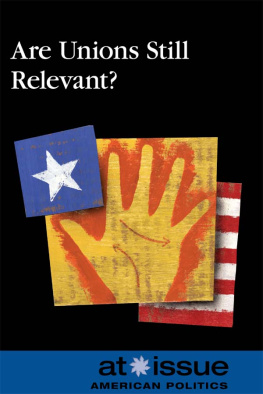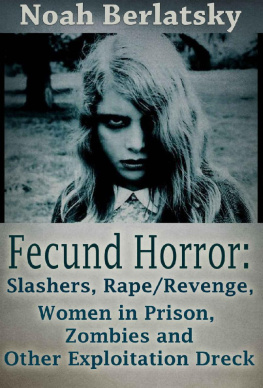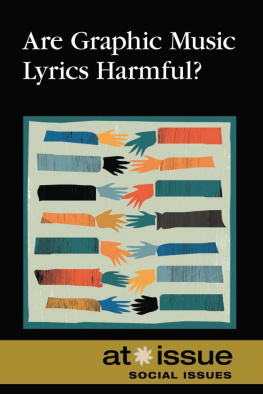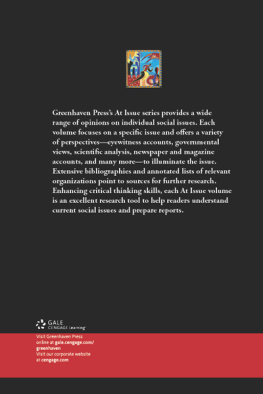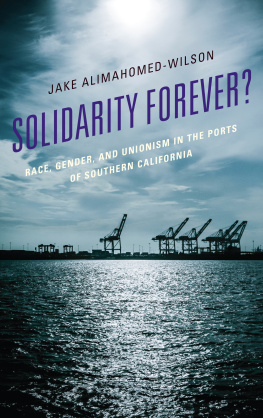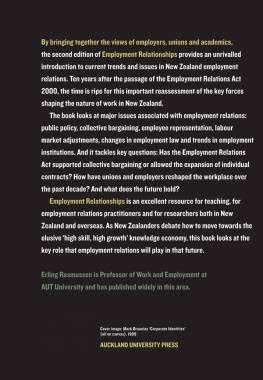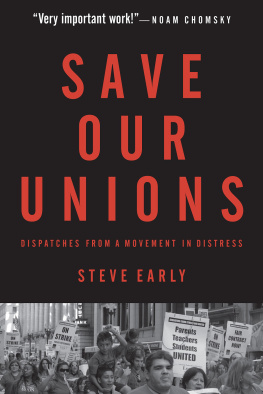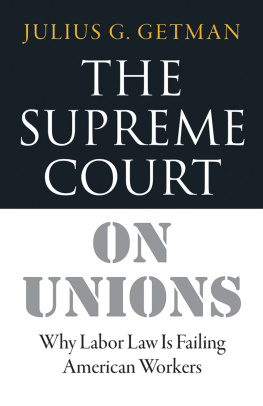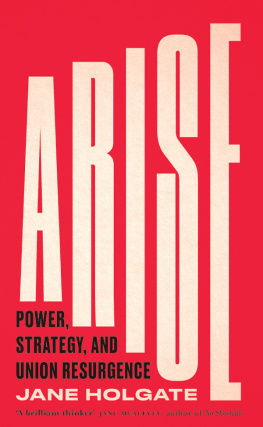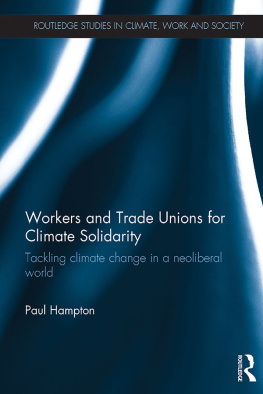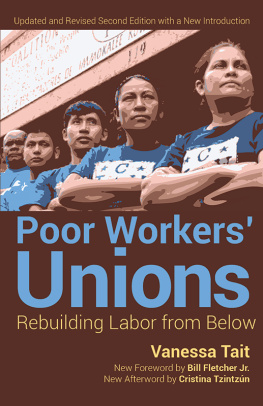The Great Recession Has Marginalized Unions
James Surowiecki
James Surowiecki is a staff writer at the New Yorker, where he writes a column on business and finance called The Financial Page.
The Great Recession of 20072009 has exacerbated the unpopularity of unions. In the past, unions provided benefits to all workers, since the threat of strikes and increased wages helped even non-unionized workers. As unions have diminished in numbers, though, benefits to non-union employees have dropped. Now non-union workers are frustrated by their losses in the recession, and they see union perks as illegitimate. Unions are caught in a death-spiral, where less influence leads to less popularity leading to even less influence.
I n the heart of the Great Depression, millions of American workers did something theyd never done before: they joined a union. Emboldened by the passage of the Wagner Act, which made collective bargaining easier, unions organized industries across the country, remaking the economy. Businesses, of course, saw this as grim news. But the general public applauded labors new power, even in the face of union tactics that many Americans frowned on, like sit-down strikes. More than seventy per cent of those surveyed in a 1937 Gallup poll said they favored unions.
Union Support Is Plummeting
Seventy-five years later, in the wake of another economic crisis, things couldnt be more different. The bailouts of General Motors and Chrysler saved the jobs of tens of thousands of U.A.W. workers, but were enormously unpopular. In the recent midterm elections, voters in several states passed initiatives making it harder for unions to organize. Across the country, governors and mayors wrestling with budget shortfalls are blaming public-sector unions for the problems. And in polls public support for labor has fallen to historic lows.
The hostility to labor is most obvious in the attacks on public-sector workers as what Tim Pawlenty, Minnesotas former governor, calls exploiterscosseted, overpaid bureaucrats whose gold-plated pension and health plans are busting state budgets. But theres also been a backlash against labor generally. In 2009, for the first time ever, support for unions in the Gallup poll dipped below fifty per cent. A 2010 Pew Research poll offered even worse numbers, with just fortyone per cent of respondents saying they had a favorable view of unions, the lowest level of support in the history of that poll.
The disappearance of unions from the private sector has radically diminished the threat effect, meaning that unions dont raise the wages of non-union workers.
In part, this is a simple function of the weak economy. The statistician Nate Silver has found a historical correlation between the unemployment rate and the popularity of unions. Furthermore, an analysis of polling data by David Madland and Karla Walter, of the Center for American Progress, shows that, when times are bad, the approval ratings of government, business, and labor tend to drop in sync; voters, it seems, blame all powerful institutions equally. And although organized labor is much less powerful than it once was, voters dont seem to see it that way: more than sixty per cent of respondents in the 2010 Pew poll said that unions had too much power.
Unions Seen as Just Another Interest Group
The recession has also magnified the gap between unionized and non-unionized workers. Union workers, on average, get paid more than their non-unionized counterpartsmost estimates put the difference at around fifteen per centand that wage premium widens during recessions. Similarly, union workers often still have defined-benefit pensions, which sets them apart from all those Americans who watched their retirement accounts get ravaged by the financial crisis. Thats given rise to what Olivia Mitchell, an economics professor at Wharton, calls pension envy. This resentment is most evident in the backlash against public-sector workers (who now make up a majority of union members). A recent study by the economics professors Keith Bender and John Heywood found that, when you control for a host of variables, public employees are not actually paid more than their private-sector counterparts. But they do often enjoy good retirement schemes, and in states like Illinois and California politicians have agreed to hefty contracts with state employees and then underfunded the pension plans, leaving future taxpayers to pick up the bill. Its no wonder that people are annoyed.
Still, the advantages that union workers enjoy when it comes to pay and benefits are nothing new, while the resentment about these things is. There are a couple of reasons for this. In the past, a sizable percentage of American workers belonged to unions, or had family members who did. Then, too, even people who didnt belong to unions often reaped some benefit from them, because of what economists call the threat effect: in heavily unionized industries, non-union employers had to pay their workers better in order to fend off unionization. Finally, benefits that union members won for themselveslike the eight-hour day, or weekends offoften ended up percolating down to other workers. These days, none of those things are true. Organized labor has been on the wane for decades, to the point where just seven per cent of privatesector workers belong to a union. The benefits that union members still getlike defined-contribution pensions or Cadillac health plansare out of reach of most workers. And the disappearance of unions from the private sector has radically diminished the threat effect, meaning that unions dont raise the wages of non-union workers.
The result is that its easier to dismiss unions as just another interest group, enjoying perks that most workers cannot get. Even though unions remain the loudest political voice for workers interests, resentment has replaced solidarity, which helps explain why the bailout of General Motors was almost as unpopular as the bailouts of Wall Street banks. And, at a time when labor is already struggling to organize new workers, this is grim news. In a landmark 1984 study, the economists Richard Freeman and James Medoff showed that there was a strong connection between the public image of unions and how workers voted in union elections: the less popular unions were generally, the harder it was for them to organize. Labor, in other words, may be caught in a vicious cycle, becoming progressively less influential and more unpopular. The Great Depression invigorated the modern American labor movement. The Great Recession has crippled it.
James Surowiecki, State of the Unions, New Yorker, January 17, 2011. Copyright 2011 by Cond Nast Publications. All rights reserved. Reproduced by permission.
Globalization Has Damaged the Union Movement
Jeffrey M. Hirsch
Jeffrey M. Hirsch is associate professor of law at the University of Tennessee, Knoxville.
The world economy has become increasingly international, and today it is easier for companies to relocate in other countries, or to outsource production to other countries. Labor unions cannot restrict the labor pool as they once did, since in the face of a strike a company may simply relocate overseas. As a result, unions have been considerably weakened. If they are to stay relevant, unions will need to develop new means of benefiting their workers that are tailored to the global economy. Any downloadable version is for personal use only. The source website may be accessed at:http://www.e-elgar.co.uk

